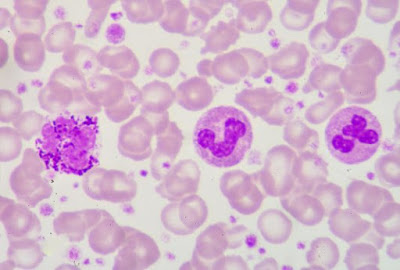What are Neutrophils Function? For those unaware, neutrophils are a type of white blood cell which becomes an essential part of the immune system. They serve to protect the body from foreign invaders, such as viruses and bacteria. They are also known as phagocytes because they work by ingesting those organisms that could be detrimental to the body. The production occurs in the bone marrow. Statistically, they make up from 50 to 70 percent of the total white blood cells. Neutrophils have some unique characteristics. They are highly responsive, or in this case spontaneous. This condition is also referred to as having a high motility. Aside from directly ingesting foreign particles, they also secrete cytotoxic substances which can further help neutralize the invaders.
 |
| image source: hemacare.com |
So, how do neutrophils work? Firstly, they need to identify a suspect through a process called chemotaxis. The suspect may release chemicals that are foreign to the body. They react quickly when they notice something wrong is happening. They help protect the body from the inside and outside. Infections can happen anywhere, including the skin. Most of us have had skin infection, which usually end up with pus accumulating in the area where the skin is cut or damaged. The pus itself contains various substances, including bacteria, skin cells, and deal neutrophil.
Neutrophils normal range.
A complete blood count test typically outlines the percentage of neutrophils along with other types of white blood cells. The normal range is between 1800 and 7800 cells per mL. When a count is high, it may be triggered by an infection or another condition. There are times when the immune system works extra hard to protect the body. Thus, this will directly affect white blood cell count. It can also decrease significantly, usually related to someone having treatment that directly affects the immune system, such as chemotherapy and radiation therapy.
In many cases, this condition is temporary. It will last once the said person stops having treatment that can weaken the immune system. In other cases, it can last for a long time. A neutrophil count definitely plays a role in cancer treatment. The doctor needs to monitor it continuously to find out how the immune system responds to the treatment that has been given to the patient. A low concentration of neutrophils is not alarming as long as it is in the healthy range. If the count has dropped to 1000 cells/mL or below, it poses a moderate risk of infection. And if it keeps dwindling to 500 cells/mL or lower, the patient is at high risk of infection. Antibiotics will be necessary at this point. So, what are neutrophils function in the blood? Hope you can understand it now.





0 komentar